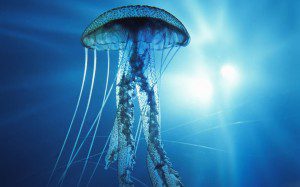By Konstantin Eriksen
Guest Writer for Wake Up World
Too many of today’s “scientific truths” remain unquestioned, and, in reality, they’re not truths at all, they are interpretations, assumptions and dogmatic beliefs. One such case is the doctrine of evolution as a random process in which genetic mutations occur more or less according to chance, and, if an organism is lucky, it gets the right mutation and survives. Sort of like winning some type of lottery jackpot.
No matter how widespread this belief is, there is no evidence that genetic mutations are random. Quite the contrary. Take a look at nature and you’ll see that there is no rational way to account for the astonishing development of species by using the theory of random mutations.
[pro_ad_display_adzone id=”110028″]
To begin with, let us take a short look at some history:
Few people have actually heard of Alfred Russel Wallace . He’s been tossed into the dustbin of history.
And yet, the truth is that his theory of evolution predated that of Charles Darwin and was actually much more advanced than that of his counterpart. The decision to credit Darwin with the theory of evolution seems to have been a political one, since Wallace was an outsider to the aristocratic and academic communities that ran the British Empire at the time. Wallace actually sent Darwin a copy of his work, in an attempt to get it published, and Darwin was astonished that Wallace had solved so many problems that Darwin himself had not come to grips with.
Notwithstanding the politics, there was also an enormous difference in the character and conclusions of the two men’s work. Wallace theorized that:
“… no unbalanced deficiency in the animal kingdom can ever reach any conspicuous magnitude, because it would make itself felt at the very first step, by rendering existence difficult and extinction almost sure soon to follow.“
In other words, whereas Darwin emphasized competition between individuals within a species, Wallace emphasized the importance of the environment and the effects of the environment on the evolutionary characteristics of the species that live in it. Like Jean Baptiste Lamarque before him, Wallace seemed to believe that organisms consciously adapt to their environment. They sense it and act accordingly in order to avoid extinction.
In the end, Darwin was the one who was published, and the title selected for Darwin’s book was “On the Origin of Species by Means of Natural Selection, or the Preservation of Favoured Races in the Struggle for Life.” Perhaps this had something to do with the colonialization of the “third world” by European empires rather than with the study of nature.
It would take innumerable volumes to catalog all of the examples of how evolution could not possibly be random. I’m going to refer to a small sprinkle of indications that there is an inherent intelligence taking place within the process of evolution.
In the deepest depths of the oceans, there is hardly any light. In a lot of places, it is completely dark. Many of the organisms that live 2 or 3 miles under the surface of the water are red. Why is it so? Why must it be red and not some other color? Red light does not penetrate to those depths, so, in reality, all those red organisms are invisible to predators. Red pigment can only be visible in the presence of red light.
One organism, called the, hatchetfish, adjusts the color of its underbelly to match the faint remnants of light coming from above. From below, it’s basically invisible: No matter how the light changes, it changes its bioluminescence accordingly.
Another example of how organisms adjust to their environment in an intelligent manner is the competition between yeast and bacteria in the soil. Mycelium in the soil all around us produce antibiotics in order to kill the bacteria and the bacteria produce antifungals to keep the mycelium in check. Quite a few pharmaceutical drugs have come straight from the process, and one obvious example is penicillin mold. Penicillin kills bacteria in nature because if it did not, it would go extinct.
This battle has been going on for millenia and neither the yeast nor the bacteria has won the war. Why? Because the other side always develops a response to each new venom developed by its adversary. All of these changes are then encoded into the genes. The genes are continuously changing, ever adjusting to external circumstances.
Perhaps the most amazing example of this type of conscious evolution is another deep-sea creature: The mimic octopus. As can be seen in the below video, the mimic octopus defends itself by imitating the predators of its predators. It is actually capable of adjusting its behavior according to which organism is approaching it by making itself appear as a predator of the organism that is threatening it.
To me, that is a form of intelligence that cannot be random. Perhaps someone could explain to us what the odds are that such spot-on mutations will occur and how long it would take for these mutations to pile up randomly to create such a creature. I can’t make such calculations, but after searching through study after study, I can’t find a single indication that randomly occuring mutations could happen quickly enough to explain the perfect evolution and adaptation of so many species in so many habitats.
Which brings me back to my initial point: The “scientists” want us to believe that all this came about through a process of random genetic mutations. Did the mimic octopus just get supremely lucky, being granted with lottery-winning genetic mutations one after the other? And where exactly is the scientific proof that these mutations are random? There isn’t any. I don’t even consider it possible to obtain such a proof. Sure, certain ancestors of the mimc octopus may have become extinct, but there is no way to explain this astonishing organism through the theory of “good luck,” especially when phenomena like this one are everywhere in nature.
Folks, the theory of “random” mutations is not only merely a dogma, it’s a joke! After every one of the five major extinctions accepted by science, animal and plant life re-populated the earth with surprising rapidity. And every single time, the organisms ended up adapting to fill every single niche on the planet all the way down to the ocean floor. As a matter of fact, there is life in fissures on the ocean bed, clearly seen in major nature documentaries, such as the BBC’s Blue Planet series, which shows living organisms living at temperatures above the boiling point of water.
Having said all this, my intent is not to support any specific dogma. What I want is for people to see this information and think it through for themselves. Some people might want to view these natural occurrences as a “proof” of their pre-existing religion or dogma.
I don’t see it that way.
All I’m saying is that evolution is definitely not random.
There is an inherent intelligence in the cosmos, whether the scientific establishment likes it or not. I don’t claim to know where it came from. It’s a part of “suchness.”
Nature itself favours complexity. No matter how many times life is destroyed by asteroids, it re-emerges and the complexity begins to grow again.
In the end, the complexity reaches the point where this consciousness of the environment becomes conscious of itself. Take a look around and see all the negative effects of human actions on nature. It’s sad that this consciousness so often goes to waste.
About the author:
Konstantin Eriksen is a former stock-trader. After quiting his job, he studied biochemistry and got into natural health and the internal martial arts. He writes the Life Sucks self- improvement blog where you can read his recent post on eliminating negative thoughts.
[pro_ad_display_adzone id=”110027″]







